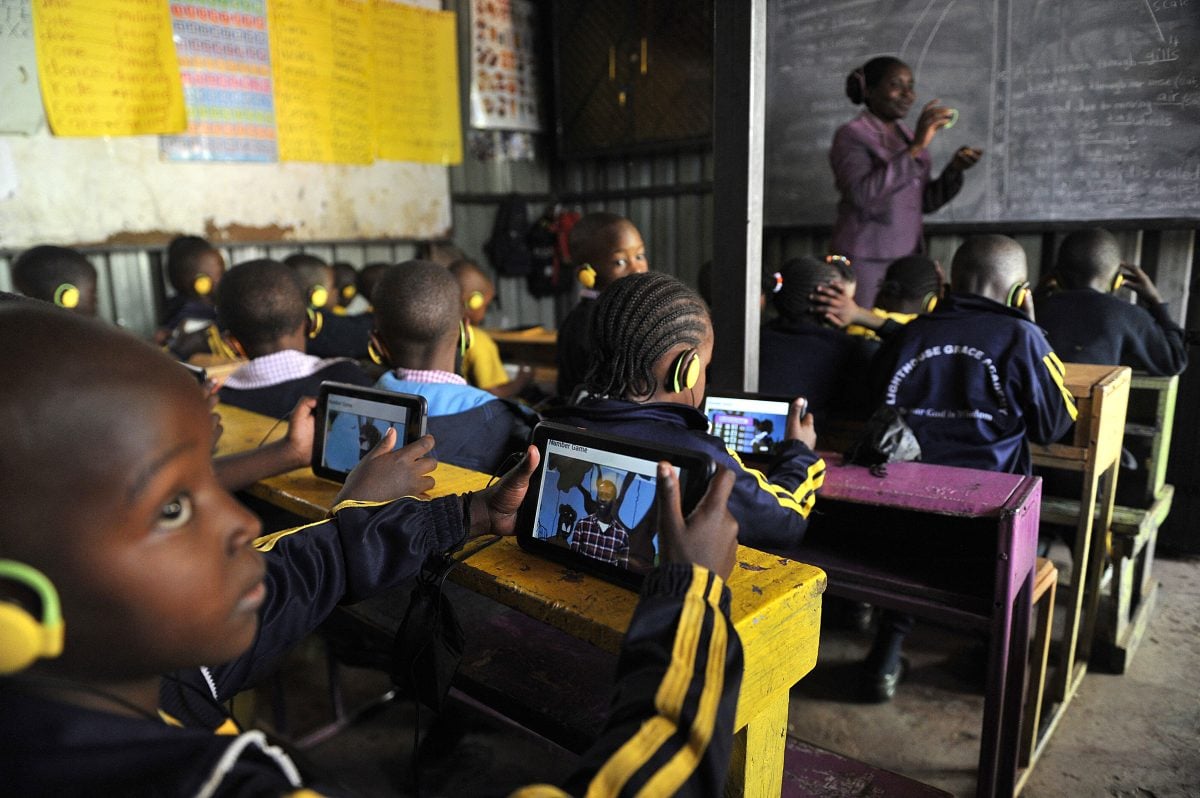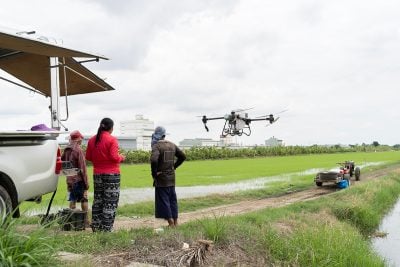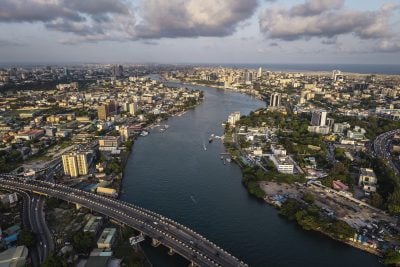Africa stands at a pivotal moment in its development journey. Across the continent, digital transformation is no longer a distant aspiration but a living, breathing reality. From mobile money to e-commerce, artificial intelligence to e-governance, digital tools are reshaping industries, driving inclusion, and offering new ways of connecting people and ideas.
Yet while momentum is growing, Africa’s digital promise remains unevenly distributed. Infrastructure gaps, limited investment, and fragmented policies continue to impede progress. Unlocking Africa’s full potential in the digital age will require bold leadership, long-term commitment, and above all, the active participation of the private sector. These themes were brought into sharp focus at the recent Global Africa Business Initiative (GABI) Bridge session held in Abidjan, Côte d’Ivoire, on the sidelines of the Africa CEO Forum.
The message from that gathering was clear and urgent: Africa does not lack ideas or talent. What it needs is decisive action to translate vision into reality. The challenge lies in accelerating digital growth, mobilising long-term investments, and aligning national and regional policies to create enabling conditions for innovation and entrepreneurship. This, in essence, is what it will take to build Africa’s digital future.
The Abidjan session convened by the UN Global Compact brought together an influential mix of CEOs, government representatives, investors, and development leaders. Their discussions underscored the critical importance of putting Africa’s private sector at the centre of global trade and investment. The dialogue was as pragmatic as it was inspiring: Africa has the ingenuity, the entrepreneurial spirit, and the youthful energy required to leapfrog traditional development pathways, but without scaled infrastructure, robust regulation, and consistent financing, the continent risks falling short of its own aspirations.
James Manyika, senior vice president at Google–Alphabet, captured the spirit of this dual challenge when he observed at a recent GABI event that connectivity is the first building block. “Basic connectivity infrastructure is essential – that’s why we’ve invested in undersea cables connecting Africa to itself, Europe, and Asia,” he noted. But he stressed that infrastructure alone is insufficient. Investors must also focus on building the skills and supporting the entrepreneurs who will define Africa’s digital economy in the decades ahead. Through initiatives such as the Black Founders Fund, Google has already backed more than 1,120 African startups, catalysing new ideas and innovations. At the same time, research centres in Ghana and Kenya, as well as partnerships with universities, are cultivating the talent pipeline required to create a vibrant artificial intelligence ecosystem rooted in African realities.
This point is crucial because Africa’s digital transformation cannot be imported wholesale from outside; it must be built locally, reflecting the continent’s diversity and needs. Manyika is right that the real challenge is not simply identifying potential solutions but executing them effectively and at scale. Africa has already demonstrated remarkable progress in mobile money, broadband access, and online services. Fintech is powering some of the most innovative financial solutions in the world, enabling millions of people to send and receive money seamlessly. E-commerce platforms are creating markets for small and medium-sized enterprises, allowing them to thrive in both urban and rural settings. Artificial intelligence is opening opportunities in healthcare, agriculture, and education. Yet behind these success stories lie structural constraints: patchy electricity supply, unreliable last-mile connectivity, limited access to fibre optic cables, and underinvestment in data infrastructure.
Short-term thinking fuels vulnerabilities
The tendency of the global tech industry to focus on short-term venture capital gains also creates vulnerabilities. Too often, startups are pushed to chase growth without the long-term backing required to build sustainable digital infrastructure. For Africa’s digital future to be secured, governments and institutions must take the lead in providing the patient capital, stable regulation, and cross-border coordination that venture capital cannot deliver alone. Data centres, public digital platforms, and national broadband networks require consistent and large-scale investment that only committed partnerships between public and private actors can achieve.
The private sector is, without doubt, a vital driver of Africa’s digital revolution. But true transformation demands a collaborative approach that goes beyond profit margins. Governments must provide the certainty of clear rules and stable policy environments. Development partners must align their programmes to support African priorities rather than impose fragmented initiatives. Investors must commit to the long haul, recognising that building digital economies is a generational project. As Sinazo Sibisi, chief investment officer at the Timbuktoo Africa Innovation Foundation, reminded participants in Abidjan, “We need to move from talk to action – from finite projects to systemic change – and build an innovation architecture that drives competitiveness in the next 10 to 30 years.”
Leadership, therefore, is indispensable. The decisions taken today by African governments, investors, and private sector leaders will determine whether the continent fully harnesses the digital revolution or is left on its margins. One of the most urgent tasks is the development of human capital. Fibre optic cables and data centres are useless without the people who will design, manage, and expand the digital ecosystem. Africa must therefore invest in education systems that equip young people with the skills they need to thrive in the digital economy. This means revising curricula to include coding, data literacy, and AI ethics; training teachers to deliver digital content effectively; and creating apprenticeships and internships that provide real-world experience. The talent pipeline cannot be an afterthought – it must be central to every discussion about infrastructure and investment.
Equally important is inclusivity. If Africa’s digital transformation leaves behind the rural, the informal, or the marginalised, it will breed inequality rather than prosperity. A truly digital Africa is one where every citizen, regardless of geography or income level, has access to affordable services, reliable infrastructure, and relevant content. This requires prioritising not just urban broadband expansion but also rural connectivity, local-language platforms, and community-based innovation hubs. Digital services must reflect the lived realities of Africans, from farmers using mobile platforms to access weather data to students relying on e-learning resources in remote villages.
There are already shining examples of what is possible when political will, private investment, and public trust align. Togo has made remarkable progress in digital governance, using technology to improve transparency and service delivery. Rwanda is positioning itself as a regional leader in fintech, innovation, and smart city development. Kenya continues to be a global trailblazer in mobile money, with M-Pesa providing a model studied and replicated around the world. These examples prove that African nations can lead rather than follow in the digital era. The task now is to replicate such successes at scale across the continent, ensuring that progress is not confined to a handful of countries but becomes the norm everywhere.
Leader of the digital age or passive consumer?
The message from GABI is unequivocal: Africa’s digital future depends not on abstract visions but on effective delivery. Success will be defined by the policies adopted today, the investments made in infrastructure and skills, and the partnerships forged between the public and private sectors. This is why GABI’s work is so vital. Each year, in September, as world leaders gather for the opening of the United Nations General Assembly, GABI seizes the moment to elevate Africa’s private sector agenda on the global stage. Its flagship event, Unstoppable Africa, highlights trade opportunities, investment prospects, and the continent’s role in shaping the global economy.
This year, Unstoppable Africa will take place on 21–22 September at the New York Marriott Marquis Hotel under the theme “The BIG Push: Africa’s Time to Shape the Markets”. Co-convened by the UN and the African Union, the event will once again bring Africa’s leaders and partners together to chart a common path forward. The focus will not just be on promises but on measurable actions that create long-term impact.
Through the Global Africa Business Initiative and the UN Global Compact’s Africa strategy, we are working to forge this path with determination and clarity. The choices made now will decide whether Africa becomes a leading shaper of the digital age or a passive consumer of technologies developed elsewhere. The continent has the vision, the people, and the entrepreneurial energy. What it needs is for governments, businesses, and investors to match that energy with policies, resources, and long-term commitment. Africa’s digital future is within reach – but only if we move together, from vision to action.
Want to continue reading? Subscribe today.
You've read all your free articles for this month! Subscribe now to enjoy full access to our content.
Digital Monthly
£8.00 / month
Receive full unlimited access to our articles, opinions, podcasts and more.
Digital Yearly
£70.00 / year
Our best value offer - save £26 and gain access to all of our digital content for an entire year!

 Sign in with Google
Sign in with Google 



